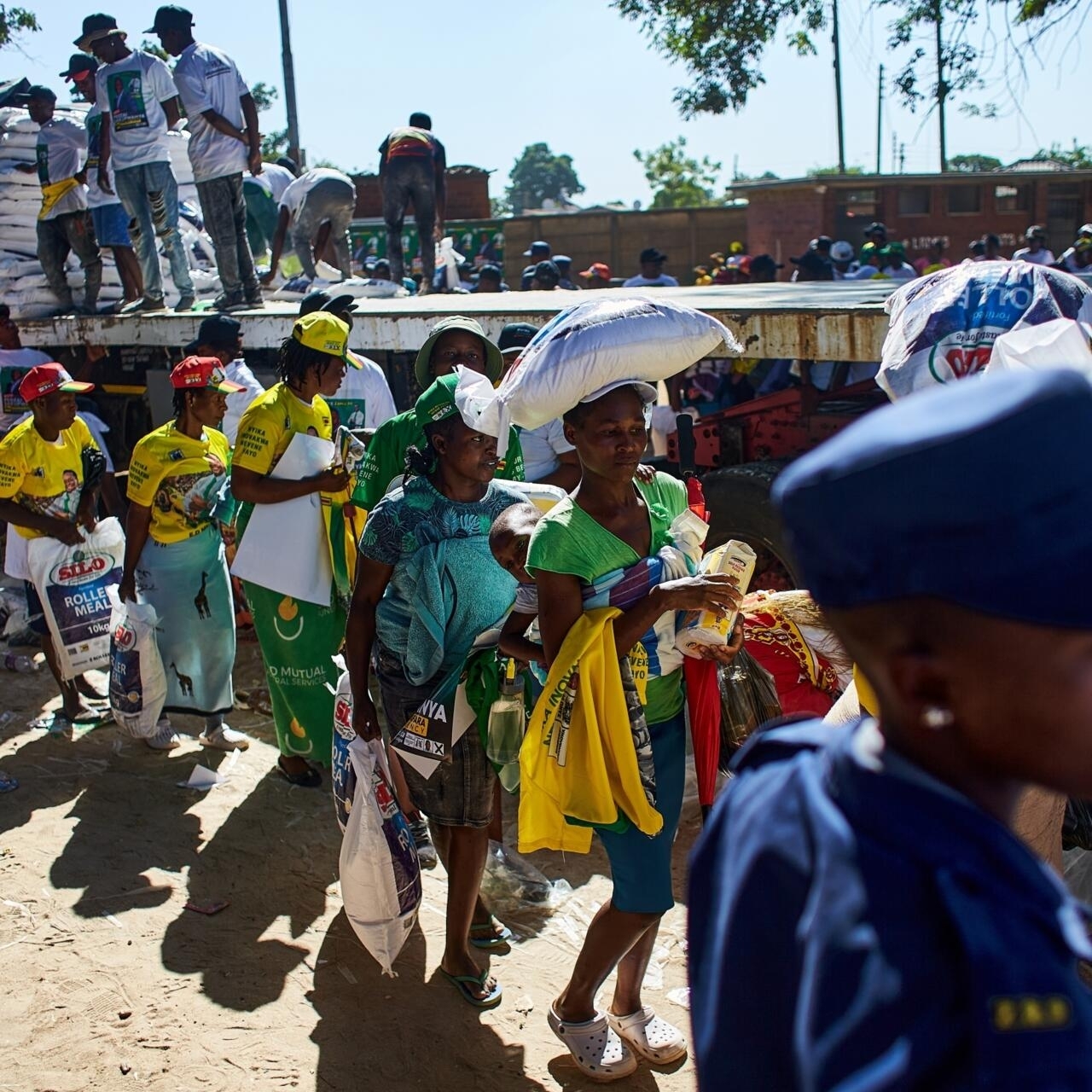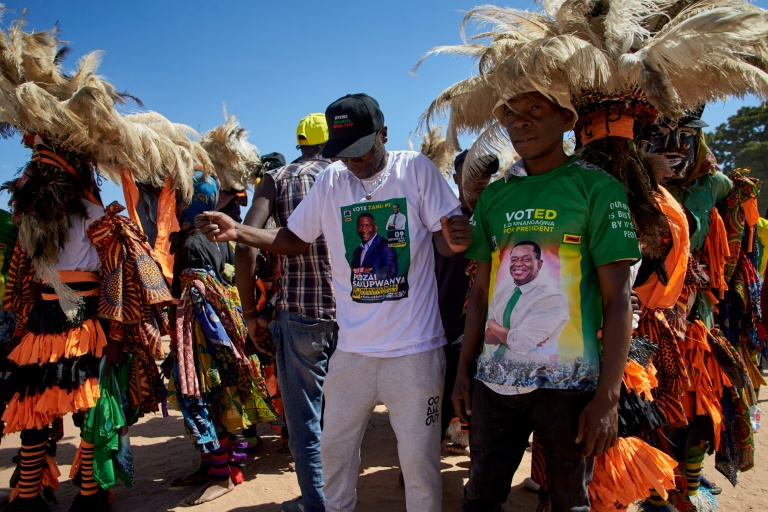Zimbabwe By-Elections Begin Amid Controversial Removal Of Opposition Lawmakers
Following the disqualification of opposition lawmakers, Zimbabwean by-elections begin amid controversial removal of opposition lawmakers. Special elections for nine parliamentary seats take place on Saturday.
Author:Dexter CookeReviewer:Hajra ShannonDec 11, 20233.4K Shares264K Views

Following the disqualification of opposition lawmakers, Zimbabwean by-elections begin amid controversial removal of opposition lawmakers. Special elections for nine parliamentary seats take place on Saturday.
The opposition views the ruling ZANU-PF party's decision to expel these lawmakers and prevent them from running again as an illegal ploy to increase the party's support and possibly amend the constitution.
ZANU-PF Seeks Greater Control
The controversial disqualification of nine opposition lawmakers from the Citizens Coalition for Change (CCC) party, all initially elected in the national vote last August, has sparked accusations of a power grab by President Emmerson Mnangagwa's ZANU-PF party.
The opposition claims that the move aims to secure a two-thirds majority, allowing ZANU-PF to alter the constitution, potentially removing term limits for the president.
Sengezo Tshabangu, a person posing as the CCC's secretary-general, was responsible for orchestrating the removal of the opposition lawmakers.
CCC leader Nelson Chamisa has dismissed Tshabangu's authority, stating that he holds no position within the party.
However, Zimbabwean courts have recognized Tshabangu's legitimacy, leading to the disqualification of the opposition MPs.
International Scrutiny And Allegations Of Suppression
As the political turmoil unfolds, international voices express concern. The U.S. State Department has imposed visa restrictions on individuals believed to be undermining democracy in Zimbabwe, accusing them of excluding opposition members from electoral processes.
Human rights groups, including Amnesty International and Human Rights Watch, warn of increased violence against opposition activists and allege the use of institutions like the courts and police force to suppress dissent.
On the eve of the special elections, the CCC announced its appeal to the Supreme Court, demanding the inclusion of eight of its candidates on the ballots.
The opposition party contends that the removal of its lawmakers is a calculated attempt by ZANU-PF to consolidate power and diminish democratic principles.
ZANU-PF, while denying any links to Tshabangu's actions, faces accusations of orchestrating chaos within the opposition.
The ruling party's spokesperson, Christopher Mutsvangwa, distances ZANU-PF from the "chaos and disorder" within the opposition, calling it an internal squabble.

Potential Constitutional Shifts
With ZANU-PF needing ten more seats for a two-thirds majority, the special elections are just the beginning.
Tshabangu's recall of additional opposition lawmakers, councilors, and mayors sets the stage for more elections in the coming months.
Observers note that the ruling party's ultimate goal may be to alter the constitution, particularly to remove term limits and extend President Mnangagwa's rule beyond 2028.
As Zimbabwe navigates this challenging political landscape, questions about the integrity of its democratic processes and the potential consequences of these electoral maneuvers linger on the minds of citizens and the international community alike.
Final Words
Zimbabwe finds itself at a crossroads with the unfolding political turmoil surrounding the special elections.
The disqualification of opposition lawmakers, accusations of power consolidation by the ruling ZANU-PF, and the contested authority of Sengezo Tshabangu have cast a shadow over the country's democratic processes.
International scrutiny, including sanctions from the U.S. State Department, reflects growing concerns about the alleged suppression of opposition and the potential manipulation of institutions.
As the special elections progress and the specter of constitutional changes looms, Zimbabwe faces an uncertain future, grappling with questions about the integrity of its democratic institutions and the path ahead for its political landscape.

Dexter Cooke
Author
Dexter Cooke is an economist, marketing strategist, and orthopedic surgeon with over 20 years of experience crafting compelling narratives that resonate worldwide.
He holds a Journalism degree from Columbia University, an Economics background from Yale University, and a medical degree with a postdoctoral fellowship in orthopedic medicine from the Medical University of South Carolina.
Dexter’s insights into media, economics, and marketing shine through his prolific contributions to respected publications and advisory roles for influential organizations.
As an orthopedic surgeon specializing in minimally invasive knee replacement surgery and laparoscopic procedures, Dexter prioritizes patient care above all.
Outside his professional pursuits, Dexter enjoys collecting vintage watches, studying ancient civilizations, learning about astronomy, and participating in charity runs.

Hajra Shannon
Reviewer
Hajra Shannona is a highly experienced journalist with over 9 years of expertise in news writing, investigative reporting, and political analysis.
She holds a Bachelor's degree in Journalism from Columbia University and has contributed to reputable publications focusing on global affairs, human rights, and environmental sustainability.
Hajra's authoritative voice and trustworthy reporting reflect her commitment to delivering insightful news content.
Beyond journalism, she enjoys exploring new cultures through travel and pursuing outdoor photography
Latest Articles
Popular Articles